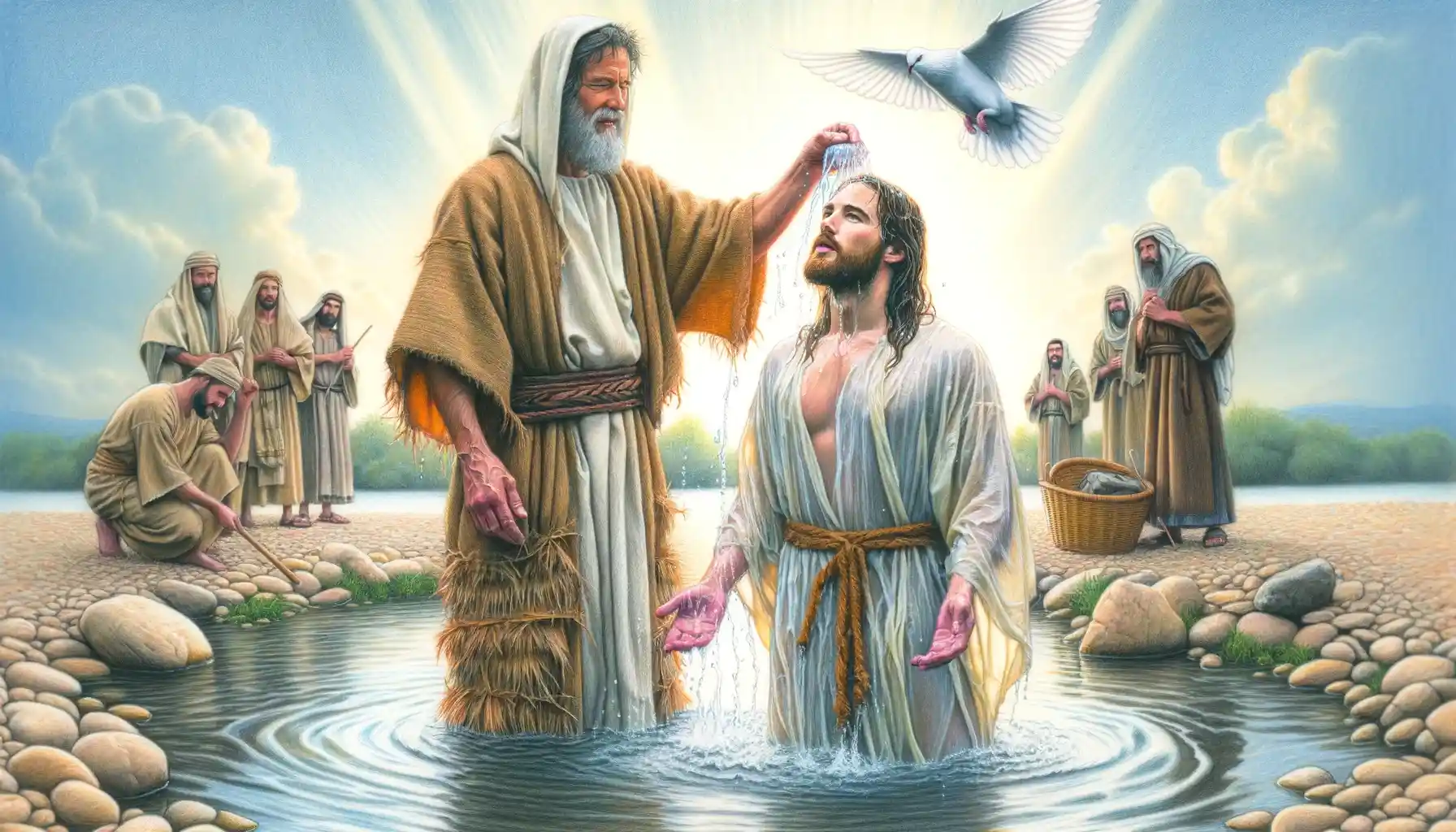
John the Baptist: Prophet who baptized Jesus, Heralding His Ministry
John the Baptist, a prominent prophet in the New Testament, is known for baptizing Jesus and heralding His ministry. He played a crucial role in preparing the way for Jesus, emphasizing repentance and the coming Kingdom of God.
Quick Facts
- Forerunner of Jesus: John the Baptist is recognized as the forerunner of Jesus, prophesying His coming.
- Baptism of Jesus: He baptized Jesus in the Jordan River, marking the beginning of Jesus’ public ministry.
- Message of Repentance: John’s primary message was one of repentance and preparation for the coming Messiah.
- Camel-Hair Garment: He is famously described as wearing a garment of camel’s hair and eating locusts and wild honey.
- Confrontation with Herod: John openly criticized Herod Antipas for his unlawful marriage, which led to his imprisonment and execution.
- Prophesied in Isaiah: John’s ministry was foretold in Isaiah 40:3, as a voice calling in the wilderness.
- Role in Baptism: John’s practice of baptism symbolized purification and repentance, paving the way for Christian baptism.
- Martyrdom: John was beheaded by Herod Antipas, making him one of the earliest martyrs for the faith.
Prophetic Ministry
John the Baptist’s birth was miraculous, announced by the angel Gabriel to his parents, Zechariah and Elizabeth, who were advanced in years (Luke 1:5-25). His birth and mission were prophesied in Isaiah 40:3 and Malachi 3:1, identifying him as the one who would prepare the way for the Lord.
Baptism and Preaching
John began his ministry in the wilderness of Judea, preaching a message of repentance for the forgiveness of sins (Matthew 3:1-2). He baptized people in the Jordan River as a symbol of their repentance and purification. His austere lifestyle, wearing camel’s hair and eating locusts and wild honey, underscored his prophetic mission (Mark 1:6).
Baptism of Jesus
John’s most significant act was baptizing Jesus. Despite feeling unworthy, John consented when Jesus insisted, recognizing the importance of fulfilling all righteousness (Matthew 3:13-15). During the baptism, the heavens opened, the Spirit of God descended like a dove, and a voice from heaven declared, “This is my beloved Son, with whom I am well pleased” (Matthew 3:16-17). This event marked the beginning of Jesus’ public ministry.
Message and Influence
John’s message centered on repentance and the imminent arrival of the Kingdom of God. He called people to turn from their sins and be baptized as a sign of their commitment to a renewed life. His ministry attracted large crowds, including many who would become followers of Jesus. John’s recognition of Jesus as the “Lamb of God who takes away the sin of the world” (John 1:29) emphasized his role in heralding the Messiah.
Confrontation with Herod Antipas
John’s boldness in confronting sin extended to political authority. He publicly condemned Herod Antipas for marrying Herodias, his brother’s wife, which was unlawful according to Jewish law (Mark 6:17-18). This confrontation led to John’s imprisonment and eventual execution. At Herodias’s prompting, Herod Antipas had John beheaded, presenting his head on a platter to Herodias’s daughter, Salome, as a macabre reward for her dance (Mark 6:19-29).
Prophesied Role
John’s role was prophesied in Isaiah 40:3 and Malachi 3:1. Isaiah’s prophecy described him as a voice calling in the wilderness, preparing the way for the Lord. This identification reinforced John’s mission as the one who would set the stage for Jesus’ ministry by calling people to repentance and readiness for the coming Messiah.
Legacy and Theological Themes
- Repentance and Preparation: John’s message emphasized the importance of repentance as a prerequisite for entering the Kingdom of God.
- Recognition of Jesus: His declaration of Jesus as the Lamb of God highlighted Jesus’ sacrificial role in redemption.
- Baptism: John’s practice of baptism for repentance laid the foundation for the Christian sacrament of baptism, symbolizing purification and initiation into the faith.
- Courage and Integrity: John’s willingness to confront sin and authority, even at the cost of his life, exemplifies prophetic courage and integrity.
Legacy and Impact
John the Baptist’s legacy is profound in both Christian and historical contexts. His role as the forerunner of Jesus is celebrated in Christian tradition, with his life and ministry serving as a model of prophetic zeal and dedication to God’s calling. His practice of baptism and his message of repentance continue to influence Christian doctrine and practice.
Conclusion
John the Baptist, the prophet who baptized Jesus and heralded His ministry, is a pivotal figure in the New Testament. His message of repentance, his recognition of Jesus as the Messiah, and his courageous confrontation of sin highlight his significant role in preparing the way for Jesus and setting the stage for the unfolding of the Gospel.
